World News
-
 Greece smashes tourism revenue record as visitor spending and winter travel surge
Greece has posted a new all-time record in tourism revenue, confirming its status as one of the world’s most resilient and attractive travel destinations in theRead More...
Greece smashes tourism revenue record as visitor spending and winter travel surge
Greece has posted a new all-time record in tourism revenue, confirming its status as one of the world’s most resilient and attractive travel destinations in theRead More... -
 UK denies pause in Chagos Islands deal as US concerns resurface over Diego Garcia
Britain has moved quickly to clarify its position on the future of the Chagos Islands after mixed messages from the government suggested the ratification of a controversial sovereignty deal hadRead More...
UK denies pause in Chagos Islands deal as US concerns resurface over Diego Garcia
Britain has moved quickly to clarify its position on the future of the Chagos Islands after mixed messages from the government suggested the ratification of a controversial sovereignty deal hadRead More... -
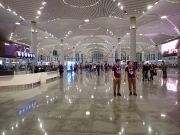 Istanbul set to overtake Heathrow as Europe’s busiest airport, CEO warns
Istanbul is poised to eclipse London as Europe’s busiest aviation hub as early as this year or next, according to the chief executive of Heathrow Airport, adding fresh urgency to long-delayedRead More...
Istanbul set to overtake Heathrow as Europe’s busiest airport, CEO warns
Istanbul is poised to eclipse London as Europe’s busiest aviation hub as early as this year or next, according to the chief executive of Heathrow Airport, adding fresh urgency to long-delayedRead More... -
 Pope Leo sets sights on Monaco, Africa, and Spain for first overseas trips of 2026
Pope Leo is preparing to take to the international stage in 2026, with the Vatican confirming a series of overseas visits that will span Europe and Africa in the first half of the year.Read More...
Pope Leo sets sights on Monaco, Africa, and Spain for first overseas trips of 2026
Pope Leo is preparing to take to the international stage in 2026, with the Vatican confirming a series of overseas visits that will span Europe and Africa in the first half of the year.Read More... -
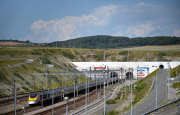 UK–Europe rail freight revival: £15m barking Eurohub deal set to restart Channel Tunnel cargo trains
Regular rail freight services through the Channel Tunnel are set to make a long-awaited comeback after a landmark, government-backed deal aimed atRead More...
UK–Europe rail freight revival: £15m barking Eurohub deal set to restart Channel Tunnel cargo trains
Regular rail freight services through the Channel Tunnel are set to make a long-awaited comeback after a landmark, government-backed deal aimed atRead More...

Culture
-
 Emery Walker revealed: new exhibition explores the man behind the arts and crafts legend
A new exhibition opening this spring at Emery Walker’s House sets out to restore depth, warmth, and personality to one of Britain’s most influential yetRead More...
Emery Walker revealed: new exhibition explores the man behind the arts and crafts legend
A new exhibition opening this spring at Emery Walker’s House sets out to restore depth, warmth, and personality to one of Britain’s most influential yetRead More... -
 London confirms St Patrick’s Day 2026 parade and Trafalgar Square festival
London will turn green once again next spring after the Mayor confirmed the capital’s St Patrick’s Day celebrations will take place on Sunday 15 March 2026, with aRead More...
London confirms St Patrick’s Day 2026 parade and Trafalgar Square festival
London will turn green once again next spring after the Mayor confirmed the capital’s St Patrick’s Day celebrations will take place on Sunday 15 March 2026, with aRead More... -
 Masterpieces beyond the Museum: National Gallery brings life-size art to communities ccross the UK
World-famous paintings from the National Gallery are stepping out of Trafalgar Square and into everyday life, as part of a major touring project that will seeRead More...
Masterpieces beyond the Museum: National Gallery brings life-size art to communities ccross the UK
World-famous paintings from the National Gallery are stepping out of Trafalgar Square and into everyday life, as part of a major touring project that will seeRead More... -
 Award-winning Polish writer Mariusz Szczygieł brings ‘Not There’ essay collection on UK tour
Polish writer Mariusz Szczygieł, one of Central Europe’s most acclaimed literary reporters, will tour the UK later this month with a series of public events marking the English-language release...Read More...
Award-winning Polish writer Mariusz Szczygieł brings ‘Not There’ essay collection on UK tour
Polish writer Mariusz Szczygieł, one of Central Europe’s most acclaimed literary reporters, will tour the UK later this month with a series of public events marking the English-language release...Read More... -
 Professor Dame Carol Black GBE reappointed as Chair of the British Library for 2026–2027
The UK Secretary of State has confirmed the extension of Professor Dame Carol Black GBE as Chair of the British Library, continuing her leadership from 1 September 2026 to 31 August 2027.Read More...
Professor Dame Carol Black GBE reappointed as Chair of the British Library for 2026–2027
The UK Secretary of State has confirmed the extension of Professor Dame Carol Black GBE as Chair of the British Library, continuing her leadership from 1 September 2026 to 31 August 2027.Read More... -
 Climate, community and care: Soma Surovi Jannat’s landmark exhibition at the Ashmolean Museum
From spring through autumn 2026, the Ashmolean Museum presents 'Soma Surovi Jannat: Climate Culture Care', a powerful new exhibition that places climateRead More...
Climate, community and care: Soma Surovi Jannat’s landmark exhibition at the Ashmolean Museum
From spring through autumn 2026, the Ashmolean Museum presents 'Soma Surovi Jannat: Climate Culture Care', a powerful new exhibition that places climateRead More... -
 Londoners on trial: 700 years of crime revealed in a free City archives exhibition
From medieval pickpockets to notorious Victorian figures, seven centuries of crime, punishment and public fascination are laid bare in a new exhibition atRead More...
Londoners on trial: 700 years of crime revealed in a free City archives exhibition
From medieval pickpockets to notorious Victorian figures, seven centuries of crime, punishment and public fascination are laid bare in a new exhibition atRead More... -
 Lost for centuries, Henry VIII’s golden love pendant finds a home at the British Museum
A golden heart pendant once symbolizing the doomed marriage of Henry VIII and Katherine of Aragon has finally been secured for permanent display at the BritishRead More...
Lost for centuries, Henry VIII’s golden love pendant finds a home at the British Museum
A golden heart pendant once symbolizing the doomed marriage of Henry VIII and Katherine of Aragon has finally been secured for permanent display at the BritishRead More... -
 British High Commission hosts Caledonian Ball in Lahore to celebrate growing Scotland–Pakistan partnership
The British High Commission brought a touch of Scotland to Lahore this week as it hosted the Caledonian Ball at the historic Sir Ganga Ram Residence, celebratingRead More...
British High Commission hosts Caledonian Ball in Lahore to celebrate growing Scotland–Pakistan partnership
The British High Commission brought a touch of Scotland to Lahore this week as it hosted the Caledonian Ball at the historic Sir Ganga Ram Residence, celebratingRead More... -
 300-year-old Rysbrack Marble putti blocked from export as UK scrambles to save national treasure
A three-century-old marble sculpture by renowned eighteenth-century sculptor Michael Rysbrack has been placed under a temporary UK export ban, giving BritishRead More...
300-year-old Rysbrack Marble putti blocked from export as UK scrambles to save national treasure
A three-century-old marble sculpture by renowned eighteenth-century sculptor Michael Rysbrack has been placed under a temporary UK export ban, giving BritishRead More... -
 Inside ICG PR: how an international PR agency shapes reputation for luxury, fashion, and cultural brands
Interview: the co-founder of Iris Consulting Group Iryna Kotlyarevska on building global visibility with cultural intelligenceRead More...
Inside ICG PR: how an international PR agency shapes reputation for luxury, fashion, and cultural brands
Interview: the co-founder of Iris Consulting Group Iryna Kotlyarevska on building global visibility with cultural intelligenceRead More... -
 London Zoo’s giraffes take centre stage in New London Underground poster celebrating 200 years of ZSL
London Zoo’s iconic giraffes have stepped into the spotlight with the launch of a striking new London Underground poster, marking the start of ZSL’s 200th anniversaryRead More...
London Zoo’s giraffes take centre stage in New London Underground poster celebrating 200 years of ZSL
London Zoo’s iconic giraffes have stepped into the spotlight with the launch of a striking new London Underground poster, marking the start of ZSL’s 200th anniversaryRead More...

British Queen celebrates
Most Read
- Teen held after US woman killed in London stabbings
- Heave-ho Harry! Prince prepares to join the walking wounded in ice trek to North Pole
- Football: Farhad Moshiri adamant Everton deal above board
- "Master of English Style". Interview with Designer Lydia Dart
- Letter to the Financial Times from Lord Mayor Alderman Michael Bear
Comment

Theresa May briefly escapes the Westminster bear pit to bring her Brexit battle to Brussels on Wednesday, just four days before the divorce deal is to be signed.

British inflation has hit its highest level in almost six years, official data showed Tuesday, forcing Bank of England governor Mark Carney to explain the rise in an exceptional letter.

Hidden cameras have captured images of the critically endangered Sumatran rhino on the Indonesian part of Borneo island, where it was thought to have long ago died out, the WWF said Wednesday.
Sixteen camera traps -- remote-controlled cameras with motion sensors frequently used in ecological research -- filmed the rhino walking through the forest and wallowing in mud in Kutai Barat, East Kalimantan province.
The footage, filmed on June 23, June 30 and August 3, is believed to show different rhinos although the WWF said confirmation of this will require further study.
There were once Sumatran rhinos all over Borneo but their numbers have dwindled dramatically and they were thought to now exist only on the Malaysian part of the island.
But the research disclosed Wednesday, a joint effort between the WWF and authorities in Kutai Barat, shows that the animal is still present on the Indonesian side of Borneo.
Borneo is the world's third-largest island and is shared between Indonesia, Malaysia and Brunei.
“This physical evidence is very important, as it forms the basis to develop and implement more comprehensive conservation efforts for the Indonesian rhinoceros,” said Indonesian Forestry Minister Zulkifli Hasan.
“This finding represents the hard work of many parties, and will hopefully contribute to achieving Indonesia's target of three percent per year rhino population growth.”
He urged officials and environmentalists to try and come up with a scientific estimate of the remaining Sumatran rhino population in Indonesian Borneo.
The research was unveiled at the start of an international meeting on efforts to protect rhinos in Bandar Lampung on Indonesia's western island of Sumatra, with governments from Bhutan, Indonesia, India, Malaysia and Nepal represented.

Egypt’s cultural heritage is at risk: As a consequence of political chaos in the country significant archaeological resources are not sufficiently guarded. Raiders’ empty spaces millennia-old grave chambers – the authorities are overwhelmed.
A few hundred meters from the pyramids in Chur roof of sandy-brown soil is full of holes. Dozens of open shafts lead into the depths, some up to seven meters: Here grave robbers were at work. Below the earth’s surface is one of the oldest cemeteries roof Churchill Egypt – tombs, possibly full of treasures from the Pharaonic period. Archaeologists have partially mapped but not yet exposed. The situation is similar in many areas of Egypt.
Civilizations of the pharaohs of the Romans, Greeks, Copts and Fatimid have left traces everywhere in the country. Long, not all treasures being uncovered. Grave robbing has always been a problem with the Egypt had to fight – but since the 2011 revolution, “this phenomenon has increased even further,” complains Abdel-Halim Nur el-Din, a professor of archeology and ex-head of the Egyptian Antiquities Authority. “We piecemeal lose our heritage.”
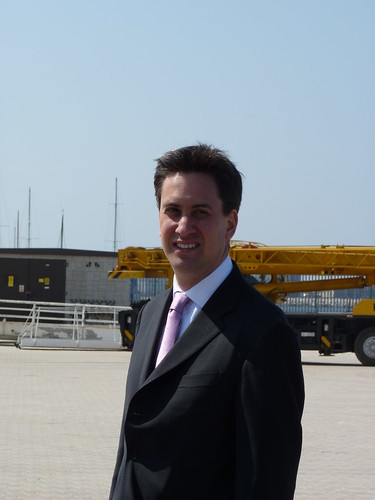
Multinational organisations should be forced to publish one simple figure for how much corporation tax they pay in the UK, Ed Miliband has said.
The Labour leader said making finances more transparent would help the public judge whether companies were behaving in a responsible way. The party is also reviewing the whole system of corporation tax to see if loopholes can be closed.
The pledges follow heavy criticism of a number of big firms, such as coffee chain Starbucks and online retailer Amazon, for using dubious tactics to minimise their corporation tax bills.
Speaking on the BBC's Andrew Marr show, Mr Miliband said: "We've got to take action on tax avoidance in this country.
"We've got a situation where many British companies and many individuals are paying their fair share of tax and they look in horror at a system where some multinational companies from other countries can make huge profits in Britain and not pay taxes in Britain.
"This is scandalous. It's got to change; the next Labour government will change it. We'll end the tax secrecy because we can't have a situation where we don't know how much tax people are paying against how much profit they're making.
"It's wrong and frankly it's an insult to hard-working taxpayers in this country."
Mr Miliband said David Cameron had spoken about international action to crack down on corporate tax avoidance, but insisted there were steps that could be taken alone.

Keepers at London Zoo conducted an annual count of all its animals Thursday, from meerkats to penguins and owls.
Last year's stock-take found the zoo had 17,519 residents but some of the world's most endangered species including Sumatran tigers and a white-naped mangabey have joined since then.
This year's numbers have not yet been released.
The compulsory count, required as part of the ZSL London Zoo's license, will be shared with zoos worldwide by logging the data into the International Species Information System (ISIS), in a bid to boost breeding programmes for endangered animals.
This year's numbers have not yet been released.
"We put all this data together so we know what zoo has what animal," said David Field, the zoo's director.
"All the work we do here counting the animals is so we can understand what we have and breed together the most genetically important male and females together to breed these incredibly endangered species.
Other new residents of the zoo include waxy tree frogs, two new Galapagos tortoises, black and white colobus monkeys and cotton top tamarins, potentially bringing the total number of mammals up from last year's 500.

Workmen have ditched the old greasy spoon and can now be more commonly found supping a latte or grabbing sushi.
And their working day is almost as long as a junior doctor's, a survey of tradesmen has found.
They spend just 27 minutes eating lunch and are 10 times more likely to grab a salad than a greasy fry-up, the study by Grime Boss Heavy Duty Hand Wipes found.
Coffee has overtaken tea as the workman's hot beverage of choice. While a quarter of those surveyed still prefer the traditional cuppa, almost half (47.4%) have said they prefer coffee to give them their kick, with one in six (18.2%) choosing a latte or cappuccino.
The survey of 1,000 tradesmen showed many waving goodbye to the greasy spoon cafe, with one in 10 now opting instead for a healthy salad or even sushi.
Less than 1% said they regularly ate a fry-up for lunch and just 3% choose fast food on a regular basis.
The poll indicated that the average tradesman downs 40,000 cups of tea or coffee over the course of their working lives. The first cup is typically consumed by 8.19am but four out of 10 now have their cups filled by 7am.
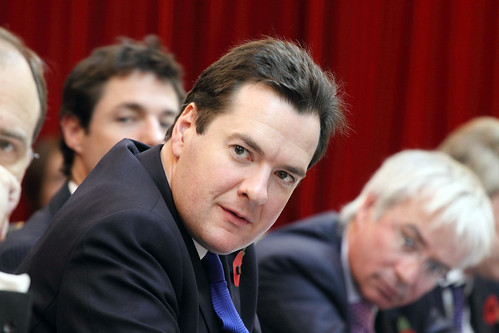
There is a growing sense of economic optimism for the year ahead compared to 12 months ago, a poll of business directors has suggested.
Business leaders are starting 2013 with a better outlook on the coming year than at the beginning of 2012, a survey of 1,369 members of the Institute of Directors (IoD) found.
According to the findings, the proportion who expect 2013 to improve on the previous year exceeds those with a pessimistic outlook by a margin of plus 31%, a direct reversal from the start of 2012, when the balance of opinion was minus 31%.
The poll suggested long-term confidence has also increased, with the balance of those expecting higher UK GDP growth over the coming decade compared to the previous 10 years rising to plus 22%, compared to minus 9% in the first quarter of 2012, minus 8% in second quarter and plus 10% in the third quarter.
Views on the probability of a return to recession have fallen, with 16% deeming the risk high, 49% moderate and 34% low.
This compares to 35% who said the risk was high, 53% moderate and 11% low at the start of 2012. The number foreseeing a high risk of a triple-dip recession has fallen from approximately one in three to one in six.

Ice sheets covering Greenland and Antarctica are melting three times faster today than they were in the 1990s, according to a "definitive" study of satellite data.
The amount of ice lost is enough to raise world sea levels by almost one millimetre a year. Since 1992, it has added 11.1 millimetres to global sea levels - contributing around a fifth of the total rise.
About two thirds of the ice loss was from Greenland and the remainder from Antarctica, said scientists.
Until now, there has been confusion over what is happening to the ice sheets in a warming world. Estimates have differed greatly, with some studies even suggesting gains rather than losses.
The new survey, published in the journal Science, is said to be the most accurate assessment to date - ending 20 years of uncertainty. It confirms that, with the exception of East Antarctica, both land masses are losing ice. But big differences in the pace of change were seen at each pole.
While the rate of ice loss from Greenland had increased almost five-fold since the mid-1990s, it had remained fairly constant in Antarctica.
Study leader Professor Andrew Shepherd, from the University of Leeds, said: "The success of this venture is due to the co-operation of the international scientific community, and due to the provision of precise satellite sensors by our space agencies. Without these efforts, we would not be in a position to tell people with confidence how the Earth's ice sheets have changed, and to end the uncertainty that has existed for many years."
The study showed that between 1992 and 2011, more than 4,000 gigatonnes of ice was lost from the Antarctic and Greenland ice sheets. A gigatonne is one billion tonnes. Despite its much smaller size, the Greenland ice sheet shed the most - 2,940 gigatonnes.
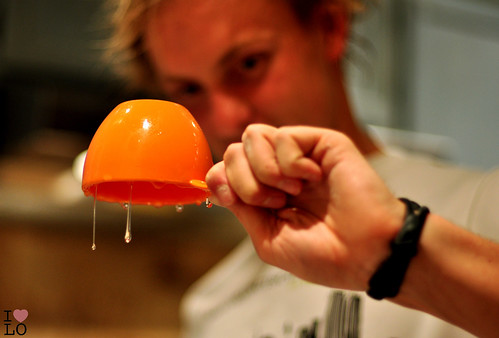
Finding healthy recipes for weight loss has been a subject growing in popularity, especially in the 21st century. Unfortunately, it seems like everyone and their so-called medically trained brother have their opinion on what "healthy" really means. After reviewing fad diets, not-so-fad diets and common sense, here is a summary of what healthy recipes for weight loss should mainly consist of.
Use foods that have as few ingredients as possible. When looking at the ingredients on the label, less is better. The fewer ingredients listed, the more naturally made it is. Better yet, if there is no label at all, you are going all nat-ur-al. Think about it. There are no ingredient labels on an apple, broccoli or russet potato, is there?
Usually the first five ingredients make up most of the food product. These first five ingredients should never include the following:
- High Fructose Corn Syrup
- Hydrogenated Oils
- Bleached and/or Enriched Flours
- Highly Processes Sugars



















